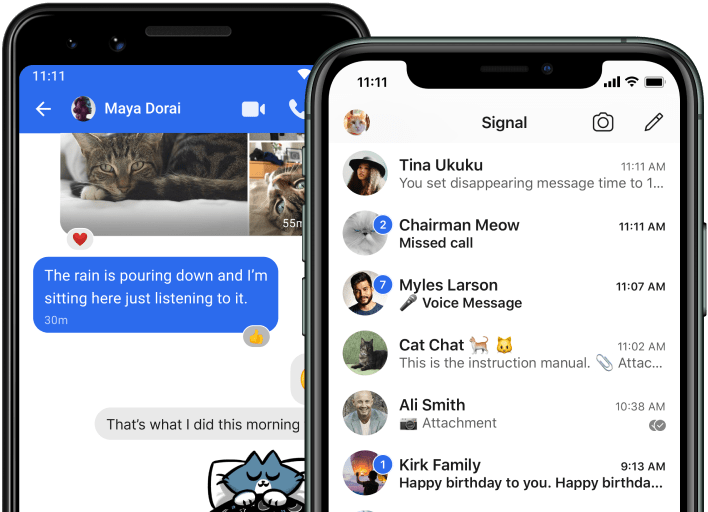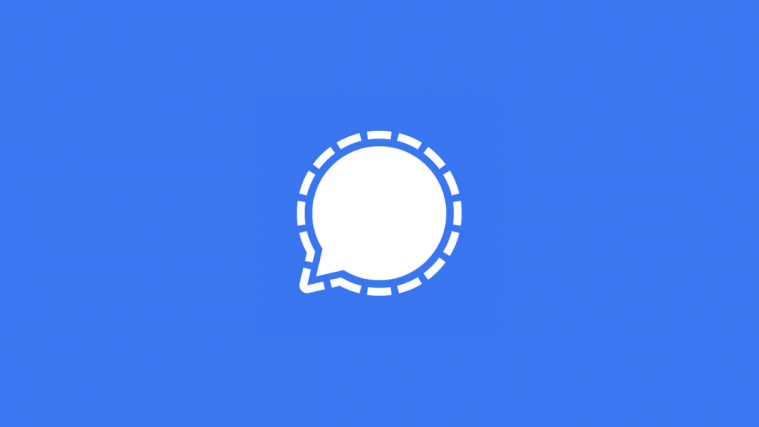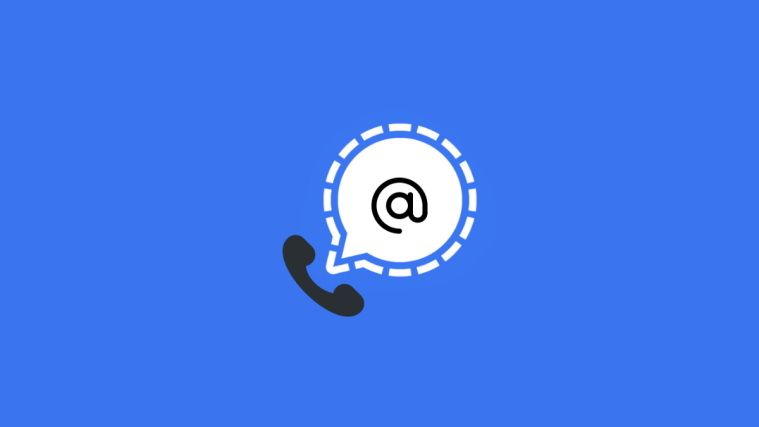The dreaded move has finally been completed — starting February 8th, WhatsApp will share all its user statistics with its parent company, Facebook. Facebook, despite being the leading social media service in history, hasn’t had the cleanest of records when it comes to data security and transparency. So, it’s hardly surprising that the entire tech community is concerned with WhatsApp’s new policy.
Amidst the chaos and confusion, a privacy-centric messaging app — Signal — has started making rounds as the worthiest alternative to WhatsApp. It doesn’t compromise on features and promises to give you the peace of mind you most definitely deserve. Today, we’ll take a closer look at the messaging application — discuss the privacy options it provides and the permissions it asks for.
Related: How Does Signal Make Money?
The origin of Signal
Before we go deeper into the app and check out its privacy features, let’s take a step back and learn when and why Signal was created in the first place.
If you aren’t a keen observer, you may have completely missed the rollout of Signal, back in 2014. It was launched shortly after Facebook acquired WhatsApp in its entirety. The developers understood the situation beforehand and came up with an alternative straight away. Sadly, lack of marketing and advertisement kept the application from going mainstream, and WhatsApp cruised to the top of the food chain without a hitch. Signal, however, didn’t lose hope and kept updating itself regularly. And now, as the world prepares to move away from WhatsApp, Signal has emerged as a worthy savior.
So, if you were concerned about trusting a “new” unproven application, we’d like to assure you that Signal is far from the newest kid on the block. It has a proven track record for being a reliable messenger service and is proudly endorsed by the likes of Edward Snowden, Elon Musk, and Jack Dorsey.
Related: Is Signal Actually Safe?
How Private is Signal?
Signal isn’t the most pleasant-looking app out there and it could certainly use some polish. However, when it comes to keeping your chats private, there’s hardly a better service out there. Listed below is Signal’s cheat-sheet that helps it give you maximum privacy.

End-to-End Encryption
This is considered to be the gold standard in the world of encryption protocols. Having E2EE makes sure the message you send can only be read by the intended recipient. No one else — including the messenger developers or the government — is allowed to snoop. Additionally, Signal happily encrypts your profile info, call history, and more — something no other messenger provides.
WhatsApp also provides E2EE, of course, but that’s only for messages and calls. The logs it generates through limitless tracking is still up for sale.
Peer review system
Having E2EE is awesome, but making the source code transparent and letting independent developers review them is truly out of the world. Unlike WhatsApp, Signal has a peer-review system, which makes sure nothing unethical is taking place. Even if Signal wished to implement something dodgy, the security experts and independent developers would be able to sniff it out in an instant by analyzing the open-source code.
No ads or trackers
Signal has built its reputation from the ground-up only through trust and the assurance of privacy. It doesn’t have pesky advertisements and is determined to keep itself as clean as possible for the foreseeable future. Trackers, too, are a strict no-no. The app won’t keep tabs on your online behavior and report to the highest bidder — something WhatsApp is guilty of.
No Telemetry
Telemetry is the act of sending your device’s intimate details, such as our profile information, last seen, battery percentage, call history, call duration, and more. With so much information at hand, any leading service doesn’t even need to break a sweat to create your online persona. The data is then sent to the highest bidder and targeted advertisement is shown. Depending on who the bidder is, you might see articles and topics that could very well skew your outlook — political or non-political.
Signal — the open-source genius — only requires your phone number to get up and running. It doesn’t create your profile and send it up to the cloud. It stores all of your personal data on your device and no one — not even the developers — is allowed to access your stuff.
Greed-free model
Greed is often the driving factor behind big privacy breaches. So, it’s indeed encouraging that Signal doesn’t have a revenue model like Facebook’s WhatsApp. This open-source messenger service runs purely on donations from fans, which means that it won’t be selling sensitive information to unknown third-parties just to increase its stack of cash.
Related: Who Owns Signal App?
What permissions must you grant Signal?
Signal doesn’t need a lot of permissions to get going, and it follows a strict policy when it comes to safeguarding the information you provide. You, of course, have to put in your contact number to get started, but you might not even need it in the future.
Below is the list of permissions that Signal may “bug” you for.
Contacts

This is an optional permission and it doesn’t come into play until you ask Signal to show you the list of friends that are already on the platform. Even if you allow Signal to check out your contacts, rest assured that all information is cryptographically hashed before transmission takes place.
Phone calls

Signal comes with the ability to make phone calls through VoIP. Allow Signal to make and manage phone calls to use the service.
Gallery and camera

Another optional permission that doesn’t affect the way you use Signal, at all. Partial access is still not available on Android, so, you’ll need to give Signal access to your entire gallery. However, since no third-party transaction is involved, your data remains as secure as possible.
The same goes for your camera as well. Grant access to your camera to send quick snaps over Signal.
Location

Similar to the gallery information, you will need to allow Signal to fetch your location if you wish to share it with another Signal user. It’s optional, of course, and you should feel free not to use this feature.
Support information
If you run into an issue while using Signal, there might come a time when you need to contact the customer care service. During the conversation, you might have to share your contact information, profile details, and more. Signal assures that the details you share are only used for problem-solving; not advertising or bumping up the profit.
Is Signal the right tool for you?

After years of reigning supreme, WhatsApp believes it has enough firepower to bring its userbase over to the dark side. The service is used by pretty much everyone we come across, which can make the transition to a different messenger service quite challenging. Still, if you are someone who knows a thing or two about privacy and security on the internet, you must take the leap and switch to a messenger service that’s yet to sell its soul.
As we have seen, Signal is an open-source, peer-reviewed, donation-driven messenger application that can take care of all your needs. Not only does it encrypt the messages you send, but it also masks even the most minute details such as profile information, call history, and more.
Signal, in its current form, is a transparent, easy-to-use, feature-rich messenger service that doesn’t have the reach of WhatsApp. If you are willing to compromise on reach and focus solely on improved privacy and security, Signal is most definitely the go-to option. Else, for convenience and familiarity, consider sticking with the current champions, WhatsApp.
Related: How to Delete Whatsapp Account and All Your Whatsapp Data






